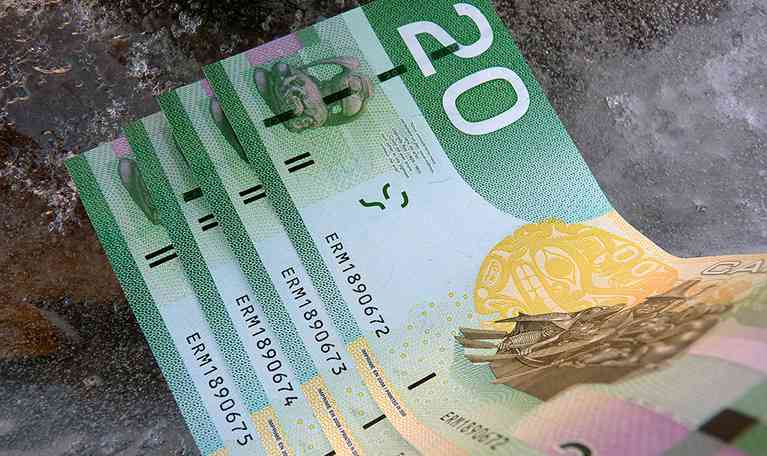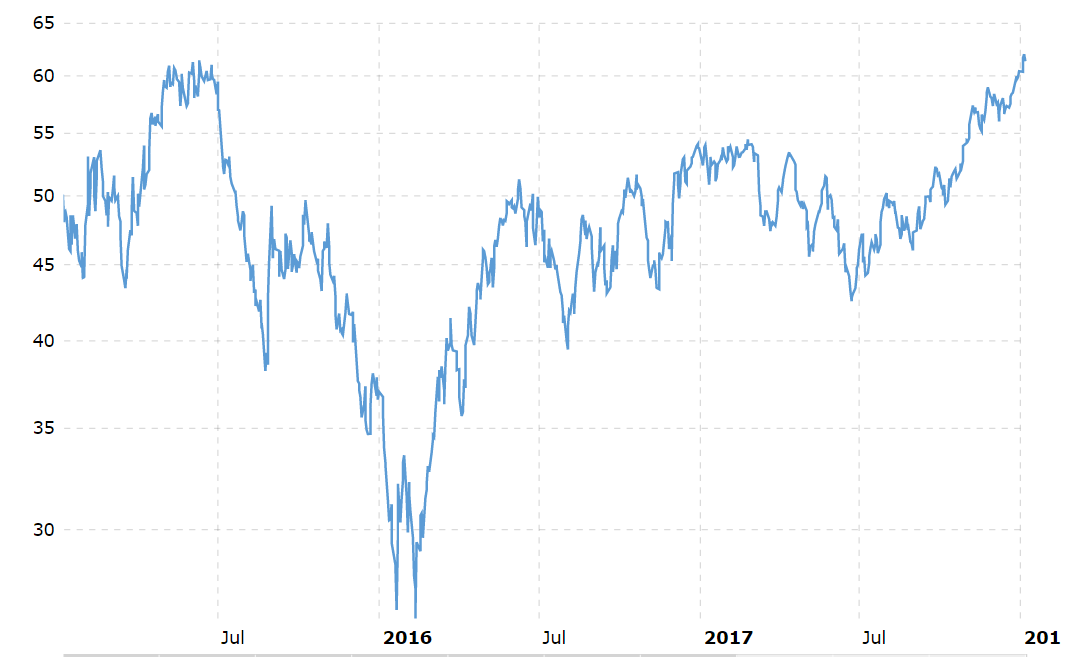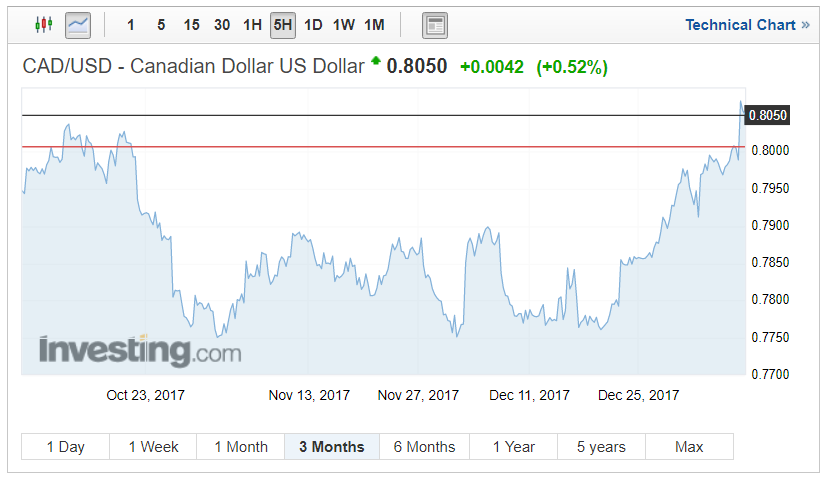The Canadian Dollar to USD exchange rate spiked significantly on Thursday following the latest employment figures which came in dramatically overestimate. The significant increase bolstered the likelihood that the Bank of Canada could increase interest rates in the nearer term.

Canadian employment change data
Financial markets had expected the Canadian employment change figure to demonstrate the growth of 1.8k new jobs in December. However, investors were left surprised in a positive fashion as 78.6k new positions were added to the economy.
However many of the Decembers newly filled positions were part-time positions, equating to 55,000 newly created part-time positions in December.
Industries and sectors which saw the largest job gains in December included; real estate, insurance, finance and leasing. These sectors enjoyed 25,000 new positions in December.
In 2017 Canada bolstered its labour force significantly. In total adding 423,000 new jobs to the Canadian economy, an increase of 2.3%. Full-time roles increased 2.7% equating to 394,000 new positions. All of which will add to the Canadian economy.
Canadian unemployment rate
In another positive move for the Canadian jobs market and the overall economy Canada, registered its lowest unemployment level in 40 years. This month saw a reduction in unemployment by 0.2% giving an overall figure of 5.7%. Analysts had expected the figure to reach 6.2% with only a slight reduction on last month’s reading of 6.3%.
Canadian Dollar supported by oil prices
With oil prices also exceeding 2.5-year highs and fears around supply in Libya, due to a recent bombing of a supply pipe and protests in Iran also inhibiting supply the Canadian Dollar may also benefit furthermore as a commodity currency.
Whilst analysts remain conflicted as to whether prices will increase significantly, prices are now quickly approaching 3-year highs as US demand remains strong; all of which should bode well for the further Canadian Dollar to USD rate gains.
Likelihood of a near-term Canadian interest rate rise
Following the significantly better than expected odds on the Bank of Canada increasing interest rates in January rose significantly, the likelihood of a rise shot from 40 percent to 70. Whilst experts also predict a total of 3 interest rate rises in 2018.
Canadian interest rates are set at 1% and have been since the last interest rate rise in September. Many analysts will now begin the process of pricing in another interest rate rise of 0.25% in anticipation of the Bank of Canada’s announcement on Wednesday 17th of January.
Canadian Dollar to USD hits 3-month high
Immediate gains were seen in the Canadian Dollar to USD exchange rate with a sharp rise from 0.7994 to 0.8068. Rising over 0.5% in Friday’s trading, before closing at 0.8050.
In 2017 the Canadian Dollar appreciated roughly 6.6% notably due to the incredibly poor performance of the USD which lost ground against many of the major currencies.
The Bank of Canada may, however, be reluctant to increase rates whilst uncertainty around the NAFTA agreement looms. Clearly, a resolution is not top of the White Houses’ priority list, especially with the release of Michael Wolff’s book due for release shortly and a legal battle already playing out. With many accusations likely to test the resolve of even the most resolute trump supporter.
In terms of the two central banks the US Fed concluded the year positively, growth was revised up to although the economy is still burdened by low inflation. Canada on the other hand now may feel compelled to raise rates, the labour market is booming, inflation stands at a healthy annualised 2.1%. Whilst Canadian growth has been phenomenal.
Put simply the key to a continually strong Canadian Dollar to USD rate will be whether the Bank of Canada has felt the economy to match the US Feds interest rate hikes.

